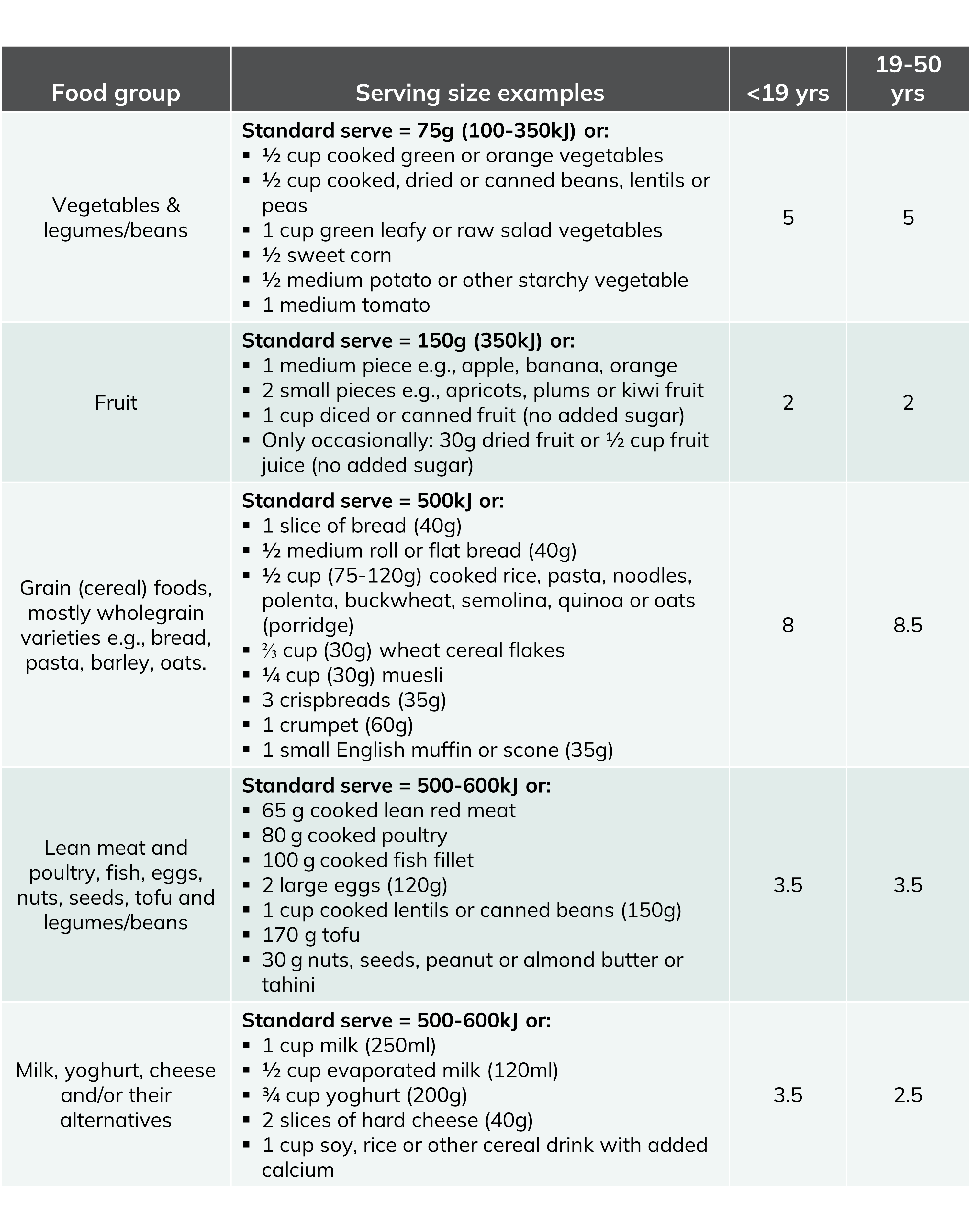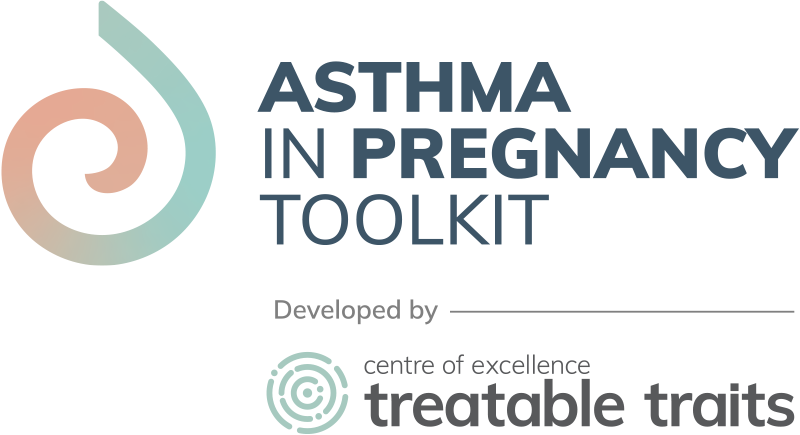Nutrition is an important contributor to optimal child growth and development during the first 1000 days of life—the period from conception to the age of two years. Failure to meet nutritional needs during this period can have profound consequences for a child’s future health. The first 1000 days represents the best time for prevention of adverse consequences including obesity and heart disease (Pietrobelli et al. 2017). Data from observational studies also suggest that some dietary patterns during pregnancy might also influence the risk of childhood asthma, although current evidence is insufficient to allow recommendations on dietary changes during pregnancy or lactation, for the prevention of pediatric asthma or atopy (Nuzzi et al. 2022, Berthon & Wood 2015).
Recommendations
Currently, there are no specific dietary guidelines for pregnant women with asthma. Therefore, the following recommendations from The Clinical Practice Guidelines: Pregnancy Care (2020) around promoting healthy eating should be followed in the management of pregnancy in asthma (Department of Health, 2020).
- Engage women in discussions about healthy eating
Advice based on the current dietary guidelines (Healthy Eating When You’re Pregnant or Breastfeeding | Eat For Health) for pregnancy should be provided to support women in gaining the recommended amount of weight during pregnancy, and to ensure the nutritional needs of both the mother and baby are met (NHMRC 2013a).
As outlined in the Australian Dietary Guidelines, consuming a wide variety of nutritious foods from each of the five food groups is particularly important during pregnancy (NHMRC 2013a); the recommended daily serves are summarised in the table below (NHMRC 2013b).
Maternal dietary antigen avoidance in pregnancy or lactation (e.g. avoidance of peanuts, eggs) is not recommended as the evidence available does not support an association with offspring allergies/asthma.

Recommended number of daily serves of each food groups during pregnancy, by age. Based on material provided by the National Health and Medical Research Council (2013).
- Breastfeeding considerations
Adequate maternal nutrition, hydration and weight management is also important to support lactation and the health and wellbeing of the breastfeeding mother.’ If weight is lost too quickly postpartum, it can impact lactation so postpartum weight loss needs to be done safely.
Find more information here: Breastfeeding
- Consider referral to an Accredited Practicing Dietitian
Although dietary intake studies are lacking, available evidence suggests that women with asthma are at risk of nutritional inadequacy with a high prevalence of vitamin D deficiency and insufficiency, excess GWG, obesity and an increased risk of GDM. Referral to an Accredited Practice Dietitian for individualised nutrition advice should be considered for women for whom there may be dietary concerns/risk factors as needing referral (for example:women with extreme morning sickness, vegan or vegetarian, iron deficiency) .
Find an APD here.
